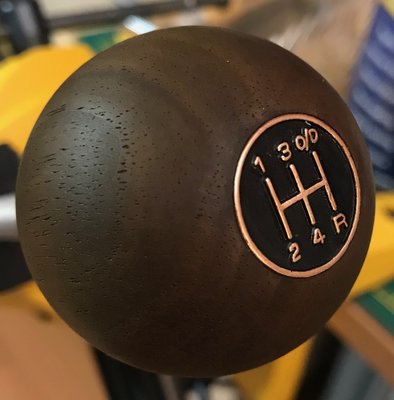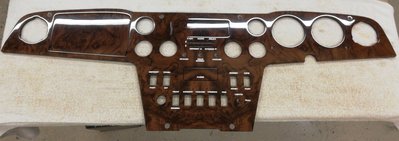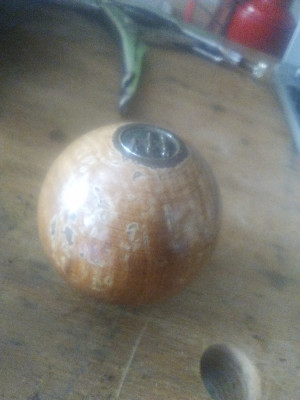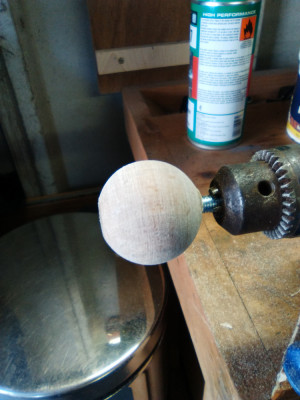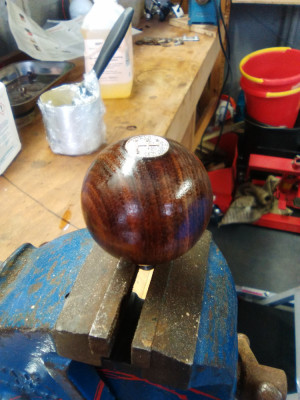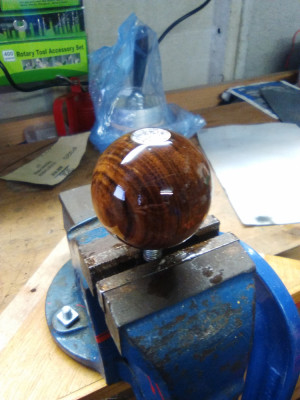Re: Gear knob restoration
Once you've got the badge out, just paint the face completely with flat black of your choosing using a model brush. Or if you want to practice your skills, get a 0000 brush and a magnifying light and paint around them. You will be able to get the raised lettering back when it dries with a toothpick or your fingernail. Use 2 coats before engaging in that.
My problem is getting the badge to stay in the knob. Last I knew it was floating about the interior, may be lost now...
When you're happy, paint the whole thing including the badge with polyurethane. I wouldn't bother with 2-part (which is pretty toxic), but whatever. Then 0000 steel wool, recoat, steel wool ... until you are almost satisfied (because some of us will never quite be. )
)
My problem is getting the badge to stay in the knob. Last I knew it was floating about the interior, may be lost now...
When you're happy, paint the whole thing including the badge with polyurethane. I wouldn't bother with 2-part (which is pretty toxic), but whatever. Then 0000 steel wool, recoat, steel wool ... until you are almost satisfied (because some of us will never quite be.
